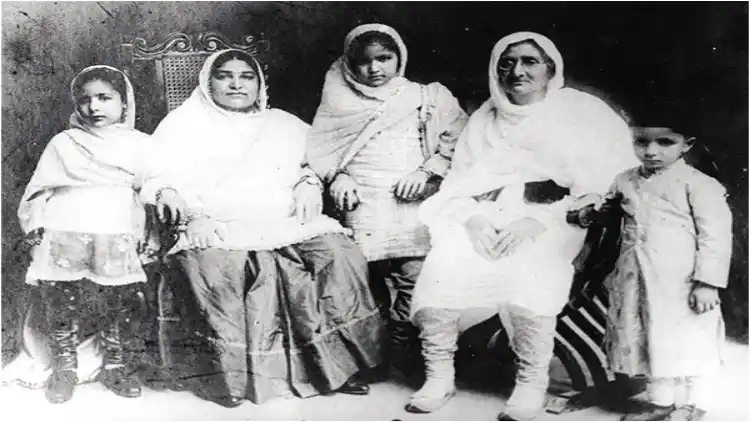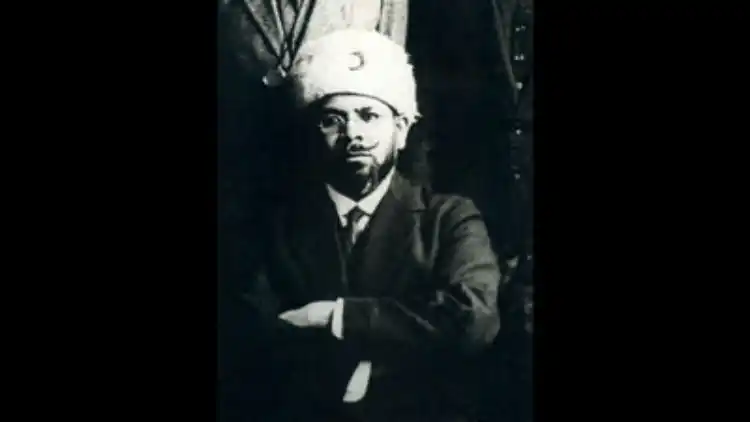
Saquib Salim
Malcolm Hailey, Member Home of the Government of (British) India, while replying to a question regarding the Indian Freedom Movement in the Central Legislative Assembly, remarked that Amjadi Begum (wife of Mohammad Ali) and Abadi Bano Begum (mother of Mohammad and Shaukat Ali) were the forces behind the fundraising and mass mobilization during the non-cooperation movement.
The relationship between Amjadi Begum and Mohammad Ali was an interesting amalgamation of mutual love, trust, companionship, and devotion to a common national cause. Abdul Majid Dariyabadi, another popular leader of the Indian Freedom Struggle, noted in his book that love was always there between Begum and Ali, but as they reached old age it reached its zenith. This love was not about carnal desires but the one which gave them stability and calmness in life. This love provided them with the purpose of life and the means to fulfill it.
According to him in Arabic, such love was termed as ‘uns’ (companionship). They both traveled with each other during political tours and addressed public meetings together. When Mohammad Ali was imprisoned she took the responsibility of public service on her shoulders. Begum traveled, addressed meetings, raised funds, and carried out social work independently.
Mohammad Ali himself writes that as soon as Begum realised that her husband wanted to devote his life to the national cause she came out with him. A burqa-clad Begum reimagined the role of an Indian Muslim woman. She addressed public meetings, raised funds, and managed the working of the Khilafat Committee. Begum’s appeal for donation was so powerful that people specifically invited her for the fundraising campaigns. Crores of Rupees were raised for the Tilak Swaraj Fund of Mahatma Gandhi and Khilafat Fund through her efforts.
Prof. Abida Samiuddin, AMU, points out that it was only because of the efforts of Begum and her family that Gandhi could travel throughout India and became a popular leader. The finances came through the funds raised by Begum while her speeches made Gandhi popular, especially among women.
Gandhi himself wrote in one of his articles that this ‘brave woman’ led the ‘fundraising campaigns’ from the fronts and traveled throughout India with Gandhi and Mohammad Ali. He went on to write that he wondered whether she could teach her husband the art of public oratory, where one impressed upon the hearts of the audience in a few words. Gandhi also pointed out the courage displayed by her on Waltair station when Mohammad Ali was arrested by police on 14th September 1921.
Gandhi was not allowed to meet Ali and only Begum, with the secretary Mr. Hayat, could see him after the arrest. When she came back after the meeting Gandhi asked if she was alright. Begum replied why she would bother since her husband had just served his duty towards the nation. About the same meeting, Mohammad Ali wrote that Begum, while parting, told him not to worry about her and their daughters. After that, Begum resumed the train journey with Gandhi to raise funds in Kerala as Ali was shifted to Karachi jail.
When Ali was in jail with his brother Shaukat, Begum took it upon herself to lead the Khilafat Movement. In the absence of her husband, Begum mentored Jamia Millia Islamia, which was in Aligarh then. She told a gathering of crying students that they should believe in God and human life is temporary but the goals are eternal. Begum also attended the Congress session in the capacity of the representative of the movement from the United Provinces.

Mohammad Ali
Mohammad Ali lovingly wrote that she was not only her life partner but comrade and companion. When he was imprisoned she turned her veil up and took reigns of the movement in her hands and popularized the movement among women as well. Ali praised her for excellent managerial skills, love, companionship, and opinions.
In 1930, Ali was severely ill but still adamant upon attending the round table conference in London. He said that he would take Begum with him because she had been his companion in every difficulty of life and he could not go on such an important mission without his comrade.
Mohammad Ali died in London during the trip. After his demise, Begum wrote to their daughter, “I am alive but worse than a dead body. Why has this destiny kept me alive? The person whom this nation, you, and I needed have left us.”
She further wrote, “Warrior of the nation went to London with a prayer on his lips that he should not return to the enslaved nation. God has kept the honour of his beloved servant. He breathed last in free London and was gloriously buried in Palestine. For which a poet has commented, "The whole world is envious of Jauhar’s death. Only God can bestow such an honour”
Begum lost her husband, lover, and comrade but the common social cause was still there. Within the lifetime of Mohammad Ali, they had distanced themselves from Gandhi and Congress for political differences and took trajectory of Muslim representational politics. For the next 16 years, till her death in March 1947, Begum was active in politics and held a considerable impact among Muslims, men, and women.
Amjadi Begum is a shining example of those women who have their existence. She was not dependent on Mohammad Ali for any introduction. Begum was a leader in her own right. Mohammad Ali was a leader in his own right. Both of them shared love, respect, and social cause in life. No wonder, Dariyabadi called their relationship comforting and pacifying.
(Saquib Salim is an author and a historian)
